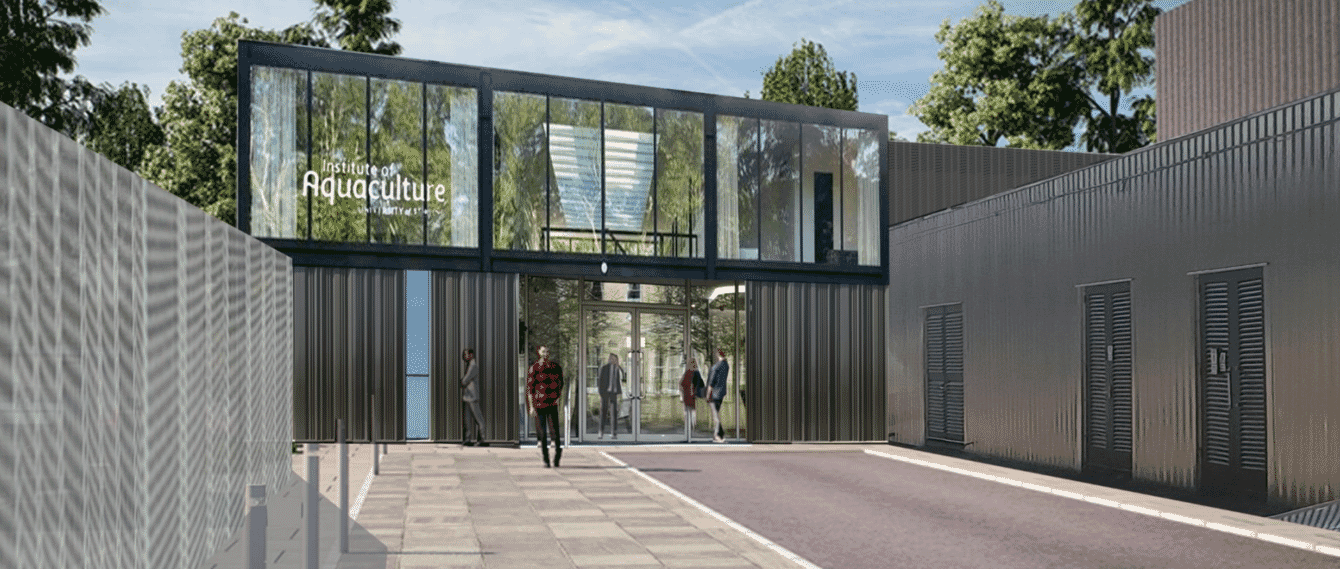
© University of Stirling
The politician was speaking on the same day that the deputy leader of Stirling Council and senior university leaders, signed the steel structure, as well as a plaque which will be hung in NATIH after it opens.
The state-of-the-art facility is funded by a £17 million investment by the UK Government through the Stirling and Clackmannanshire City Region Deal, as well as a £1 million Wolfson Foundation grant. It will be fully integrated into the university's world-renowned Institute of Aquaculture (IoA), the UK’s leading centre for aquaculture research, which includes a large-scale marine facility at Machrihanish in Kintyre and a freshwater facility at Buckieburn near Denny.
“I welcome the progress being made to deliver this pioneering aquaculture project. Backed by £17 million UK Government funding - part of our £45 million commitment to the Stirling and Clackmannanshire City Region Deal - it is a great example of collaboration to find innovative solutions for boosting productivity, creating jobs and improving sustainability in the sector in Scotland and beyond," said the secretary of state.

(l-r) Councillor Gerry McGarvey, depute leader of Stirling Council; Professor Simon MacKenzie, head of the Institute of Aquaculture, University of Stirling; Professor Sir Gerry McCormac, principal and vice-chancellor, University of Stirling; Eileen Schofield, chief operating officer and university secretary; David Cairns, regional managing director, Robertson Construction Central East © University of Stirling
“I am committed to working with partners to bring a new era of growth for Scotland. Our budget last week confirmed £1.4 billion of direct UK Government investment in local growth projects, helping to regenerate our towns and cities, support local community groups, and help businesses succeed," he added.
Professor Sir Gerry McCormac, principal and vice-chancellor of the University of Stirling, said: “The new National Aquaculture Technology and Innovation Hub will create the UK’s leading innovation community for sustainable aquatic food production, and position UK innovation and productivity at the forefront of one of the world's fastest growing sectors.
“The facility is also the catalyst for the creation of a range of high value, skilled jobs and training opportunities in the blue economy space.”
Professor Simon MacKenzie, head of the Institute of Aquaculture, added: “Our vision is to tackle global problems of food security, hunger and sustainability through aquaculture.
“The new National Aquaculture Technology and Innovation Hub will help us build on our international reputation for world-class research, teaching, technological innovation and consultancy in aquaculture, supporting growth in the production of aquatic food for human consumption, contributing to global food security while reducing the impact on natural resources.”




